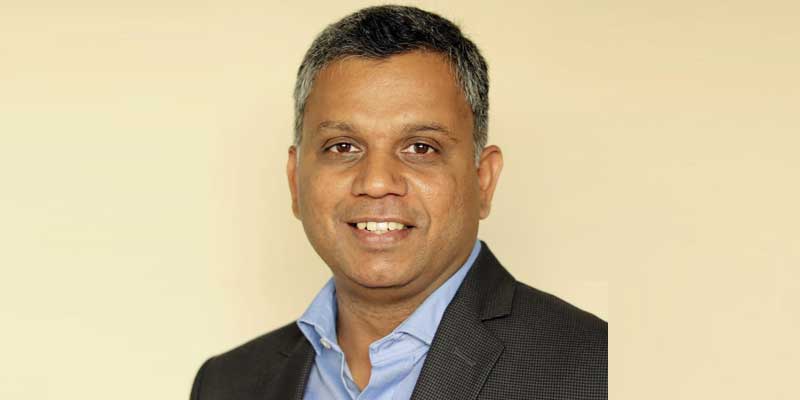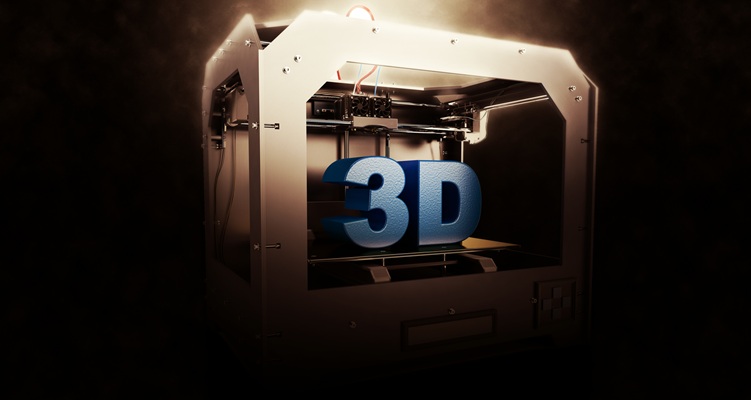Schedule a Call Back
AM is now an accepted technology to deliver final products
 Interviews
Interviews- Dec 31,22

The adoption of additive manufacturing (3D printing technology) in industries has been witnessing a steady rise over the past years. Wipro 3D - a business division of Wipro Infrastructure Engineering – is one of the first companies to start the journey of Additive Manufacturing (AM) in India. In this interview with Rakesh Rao, Yathiraj Kasal, General Manager and Business Head, Wipro 3D, talks about how additive manufacturing in India is revolutionising the industry.
How is Wipro 3D serving the additive manufacturing (3D printing) ecosystems? Which industries are driving the demand for 3D printing?
Wipro 3D was one of the first companies to start the journey of Additive Manufacturing (AM) in India. The growing demand coupled with the benefits one can derive from the use of AM has spearheaded the growth of the market over the last 10 years. The AM market globally focuses on sectors including automotive, consumer products, medical and aerospace. Although the technology can be used in almost all industries, the largest user of this technology in India is the aviation, space and defense sectors, closely followed by oil and gas and other industrial applications.
The education sector has also embraced the need to incorporate this new technology into their curriculum to ensure that the next generation of talent from India is industry ready. Wipro 3D, through its comprehensive training arm, Addwize has partnered with various educational institutions in the country to increase adoption and learning. This becomes imperative to drive wider acceptance from new users who now understand the value that the technology can deliver.
How is Wipro 3D disrupting the status quo in the manufacturing sector?
Being one of the companies to set foot early in this industry, Wipro 3D has studied the technology in depth to be able to establish best practices. Our robust quality management system, further corroborated by our certifications, is testament to our promise of delivering the best quality to our customers. This gives the users trust in this manufacturing process, thereby increasing the adoption. Today, the technology is getting widely accepted as more than just a manufacturing method for prototyping. The fewer constraints in the design process allow the adopters to design to function, without compromises.
Considering design for additive manufacturing over the traditional design for manufacturing principles helps users reap maximum benefits from the use of the technology. The traditional way of thinking has changed, making the manufacturing industry more flexible. The identification of the right use case for value delivery through AM is where service providers like Wipro 3D can play a large role. The deep understanding of technology, benefits and constraints coupled with the consulting approach, allows customers to derive the maximum benefits from the technology.
What are key challenges and new opportunities before AM players in India?
The adoption of additive manufacturing in industries has seen steady growth over the past years. The process has seen some level of standardization through establishment of manufacturing standards from ASTM, ASME, CEMILAC, etc. The Indian government has also acknowledged the importance of this technology through their National Strategy on Additive Manufacturing. This strategy strives to create a sustainable additive manufacturing eco-system within the country for the domestic as well as the international market. The space is not limited to only service providers, but to the hardware manufacturers as well. The increased adoption opens up space for new players in the market. However, it becomes the responsibility of the new entrants to maintain the standard of the output from the technology to ensure that there is wider acceptance and further growth. This comes at a cost and high investment of both time and resources.
Is there a rise in usage of AM for manufacturing final products rather than just for prototyping purposes?
In the initial phases of development, the AM industry was focused on proving the process worked and that the technology was competent to manufacture functional components. In the next phase the focus shifted to materials. Industries and business interested in using metal AM were concerned about the range and capability of materials that could meet end use requirements and service conditions. With these two aspects being proven out to a great extent, currently the focus is on standards and applications. Although we are few years behind our counterparts in US and Europe, there is a slight shift in the perception of the industry towards AM. It is now being accepted as a technology that can deliver final products which deliver equal, if not better results than their conventionally manufactured counterparts. Parts are now being designed keeping in mind the final functionality rather than the constraints of traditional manufacturing. There is a fair degree of prove-out required to adopt the technology on a larger scale since it is relatively new. This being said, it is being used widely for serial production across the world.
In India, we have seen the aerospace and defence sectors increase adoption through their thorough certification processes and validation of repeatability for flight worthy components. There are two parts manufactured by Wipro 3D for HAL, which have received flight worthiness certification from CEMILAC. The Inner Ring for Artouste engine is critical component in the hot end of an aero engine, while the Valve body is a critical component of an aircraft hydraulic system. The Space sector has also embraced the value delivery from this technology and is using it for manufacturing systems which deliver better performance. The CE20 Exhaust casing manufactured by Wipro 3D for ISRO has cleared all levels of testing and is production ready.
Besides the raw materials used, how different are metal AM and polymer AM technologies?
Major differences relate to:
- Type of feedstock: Wire, powder, resin and pellets
- Method of deposition: Melting, binding, extrusion, jetting, photo curing, lamination or fusion
- Energy source for fusion: Electron beam, laser, binder or any form of heating
- Placement of feedstock: In bed or deposition
- Environment of build: Atmosphere, inert or vacuum
In any case, the basic principle remains the same, where material is added to a previously built “slice” of the 3D model. Each technology has its own set of benefits, limitations and applications. In the metal additive manufacturing space, laser powder bed fusion, also known as selective laser melting, is the most stable and reliable manufacturing process, which has been around for the longest amount of time. The newer manufacturing methods like electron beam melting, directed energy deposition and binder jetting are still in early stages of adoption with industry standards only being set for the same.
Polymer AM technologies are more widely used and known in the industry. Fused filament fabrication is a technology which gives the users maximum flexibility for manufacturing of prototypes for fitment. This is also a relatively easy technology for users who are only starting their additive manufacturing journey. Overall, the end-applications of additive manufacturing are extremely wide spread and opens up a spectrum of use-cases.
Could you please brief us about some of your latest launches?
Over the last few months, Wipro 3D has seen some pivotal projects being launched which has further strengthened our position in the AM market. Our latest achievement has been achieving CEMILAC certification for yet another key aerospace project. The valve body, manufactured for HAL received flight certification in the first week of December. We also launched our flagship fused filament fabrication printer, F300-2. This indigenously developed FFF printer is an industrial grade robust and reliable printer, which has a set of unique features. The IOT enabled system with dual nozzle has features like automatic platform leveling, magnetic print bed, self-cleaning nozzle and dual filtration to ensure user safety and high-quality 3D prints. We have plans of growing this range of printers to include other technologies as well, retaining our focus on our current offerings of additive manufacturing consulting and services.
What are the emerging trends in 3D printing to watch out for?
The overall revamp of supply chains globally has increased the importance of decentralized or distributed manufacturing. End users would rather have parts manufactured at a facility close to them rather than a central supplier base. This helps significantly reduce lead times for manufacturing and also enables reduction of cost of storage of inventory through on-demand manufacturing from a set of CAD files and processes set up in a digital inventory. This can be further strengthened by the establishment of data security practices including blockchain.
The market has overall seen a large level of consolidation globally and players are focusing on the whole value stream rather than one specific part of it. This in turn has helped in bringing down the overall cost of manufacturing with new players and new technologies like Binder Jetting emerging and disrupting the market.
Software has a large role to play in the Additive manufacturing market. Generative design ideas help in designing innovative products. Simulation based manufacturing will also have a large role to play in the overall AM market. The increased use of in-situ monitoring capabilities of the hardware has helped increase the accuracy of these simulation driven software with a larger pool of AI driven data to drive quality.
What are your growth plans?
Wipro 3D has its eyes set of increasing the adoption of the technology within the country and the acceptance of India as a global player in the Additive manufacturing industry. With our wide range of offerings right from education to delivery of flight worthy components, both in the metal and polymer spaces, we have established ourself as one of the leading players globally. Wipro 3D is the only additive manufacturing service provider in Asia Pacific to have NADCAP certification for additive manufacturing.
In addition to this, Wipro 3D is also AS9100, ISO 9001, Lloyd Register and ISO27001 certified. With our deep focus on quality and our understanding of the technology, we aim to increase our footprint and put India on the global map for Additive manufacturing. The recent inclusion of new technologies such as Multi Jet Fusion, Electron Beam Melting and Fused Filament Fabrication in our portfolio of offerings shows the potential we see in the future of additive manufacturing. Increased focus on identifying the right use-cases through our additive consulting framework will help us in strengthening our share of market.
Related Stories

Rare crystal shapes yield stronger 3D-printed metal parts
Quasicrystals, which were previously considered a myth, are now replicable for large-scale industrial applications. Stakeholders must support investments in 3D printing technologies and continued re..
Read more
Sustainability commitments are reshaping investments: Joachim Braun of ABB
ABB, Joachim Braun, process automation, industrial automation, Rakesh Rao, Process Industries, Mining, Steel Industry, Cement Industry, Pulp and Paper, Indian manufacturing industry, North America, ..
Read more
India must focus on creating original technologies: Dr Nagahanumaiah
In this conversation with Rakesh Rao, Dr Nagahanumaiah, Director of Central Manufacturing Technology Institute (CMTI), shares insights into CMTI’s contributions to emerging technology areas, and h..
Read moreRelated Products

Digital Colony Counter
Rising Sun Enterprises supplies digital colony counter.
Robotic Welding SPM
Primo Automation Systems Pvt. Ltd. manufactures, supplies and exports robotic welding SPM.

Heat Exchanger Scale Removal Compound -hesr-300
Hi There!
Now get regular updates from IPF Magazine on WhatsApp!
Click on link below, message us with a simple hi, and SAVE our number
You will have subscribed to our Industrial News on Whatsapp! Enjoy














